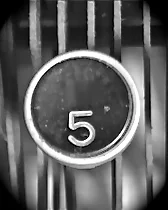5 HOT BOOKS: Eve Ensler on Being Raped by Her Father, Don't Trust Generic Drugs, and More
/1. Bottle of Lies: The Inside Story of the Generic Drug Boom by Katherine Eban (Ecco)
Cheaper but the same, say prescribers. Not true, argues Eban in her deep investigation into the generic drug industry, in which she reveals massive fraud by manufacturers that render many of these drugs not only ineffective but also very dangerous. Relentless in her scrutiny of this big business in which generics make up 90 percent of the U.S. drug supply, Eban interviewed more than 240 people, in countries from China and India to Mexico, and examined many more confidential documents, particularly from the Food and Drug Administration, to reveal the production and sale of substandard drugs around the world. Eban writes with fierce urgency and authoritative clarity, pointing not to lax standards but rather to the massive greed animating the shadowy, powerful industry that is protected by the FDA at the expense of patients.
2. The Apology by Eve Ensler (Bloomsbury)
Playwright Ensler’s The Vagina Monologues debuted in 1996 and became an international phenomenon, with women recounting their stories about sexuality, genitalia, and body image. Now the celebrated dramatist turns to prose in her slender fever dream of a book to give herself something she couldn’t get any other way. Assuming the voice of her late father, Ensler imagines his apology for raping, molesting, and abusing her throughout her childhood and conjures a reckoning with himself and what led him to these atrocities. Between the lines, readers can understand that she is coming to terms with her past and offering a blueprint for others who identify with her story.
3. A Good American Family: The Red Scare and My Father by David Maraniss (Simon & Schuster)
Washington Post journalist, winner of two Pulitzer Prizes, biographer of figures such as Bill Clinton and Barack Obama, and author of 11 previous books, including They Marched into Sunlight (Pulitzer finalist in history and winner of the J. Anthony Lukas Prize), Maraniss finally reverses his gaze, and may have found his most challenging subject yet: the story of his father, newspaperman Elliott Maraniss, whose life and career were derailed when he was brought in front of the House Committee on Un-American Activities in Detroit in 1952 during the Red Scare. Employing his own formidable skills as a reporter and historian, son Maraniss does not shy away from the reality that while his father had served honorably in the Army, he was also a political progressive and a man searching for meaning whose belief in a just world led him (and his wife and brother-in-law) to join the Communist Party. Maraniss deftly places his father within the tumult and anxieties of the era and illuminates those struggling to reconcile idealism and patriotism at a fraught moment in American history.
4. Dawson’s Fall by Roxana Robinson (Sarah Crichton/Farrar, Straus and Giroux)
As a nation grapples with the legacy of slavery, some South Carolinians remain unrepentant, a local newspaper loses subscribers in fraught times, and a few stalwarts struggle to maintain their moral centers – that may sound eerily similar to today, and yet it is the context of Robinson’s brilliant new novel, which doesn’t so much reflect the historical record as enhance and reframe it. Drawing directly from the experiences and archives of her ancestors, Robinson brings to life the world of her great-great-grandparents in the waning days of the contentious Reconstruction era when Frank Dawson, editor of the anti-lynching News and Courier in Charleston, commits himself to the rule of law, equal rights, and pacifism as violence destabilizes the region and his home life. Panoramic and yet intimate, Dawson’s Fall elegantly explores moral choices and consequences, and is a rich, rewarding novel of great imagination.
5. Rules for Visiting by Jessica Francis Kane (Penguin Press)
In her smart, insightful new novel, Kane subverts the “Eat Pray Love” mantra with a bit of E.M. Forster – “Only connect.” May is a slightly eccentric, rather cerebral landscape gardener at a local university who lives at home with her father and relates better to plants than people. When she receives the unexpected gift of a mini-sabbatical, she sets off on a sojourn to see four long-distance friends she has neglected. Informed by Emily Post and travel etiquette, May is determined to meet the standard of the ideal guest, Rules for Visiting is no girl buddy story, but rather a sharp, observant social novel about friendship, domestic arrangements, and what connection really means.










